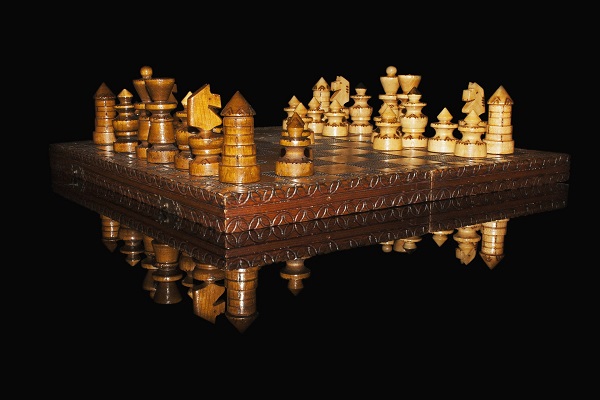Turn the Tables
 I never played much chess. However, I played checkers with my dad and sister for years. When I was losing, I hoped to turn the tables. I wanted to win.
I never played much chess. However, I played checkers with my dad and sister for years. When I was losing, I hoped to turn the tables. I wanted to win.
I never physically turned the tables to play from the opposite side. However, I tried to change the outcome of the game.
When we turn the tables, we reverse a situation.
It becomes the opposite of what it was. We see such major changes in:
- Board games, like chess or checkers
- Sports events
- Job positions
- Any competition
This expression also applies to major changes in plans.
Usually, the change helps the person who had an earlier disadvantage. Roles reverse. The shoe is on the other foot.
How did this expression begin?
According to The Free Dictionary, “Until the mid-18th century, tables was the usual name for the board game backgammon. Early instances of the use of this phrase, dating from the mid-17th century, made it clear that it comes from the practice of turning the board so that a player had to play what had previously been their opponent’s position.”
We find examples of turned tables throughout history.
The Bible tells the story of Joseph and his brothers. Joseph’s brothers were jealous of him and sold him into slavery. Eventually, Joseph achieved an important leadership position. When famine struck, Joseph’s brothers went to him for grain. They did not recognize him. After Joseph identified himself, his brothers feared for their lives.
Yet, Joseph did not act high and mighty when their roles changed. Instead, he forgave his brothers and provided for them.
Like Joseph, we have an opportunity to help others when the tables turn our way.
“‘But Joseph said to them, ‘Don’t be afraid. Am I in the place of God? You intended to harm me, but God intended it for good to accomplish what is now being done, the saving of many lives. So then, don’t be afraid. I will provide for you and your children.’ And he reassured them and spoke kindly to them” (Genesis 50:20-21 NIV).
Thanks to Debbie Tapscott and Beckham Wilson for the suggestion. Image by Waldemar Bajda from Pixabay.
Do you have an expression you want explained or a thought about this one? If so, please comment below.
Subscribe to receive my weekly posts by email and receive a free copy of “Words of Hope for Days that Hurt.”
If you enjoyed this post, please share it with your friends.